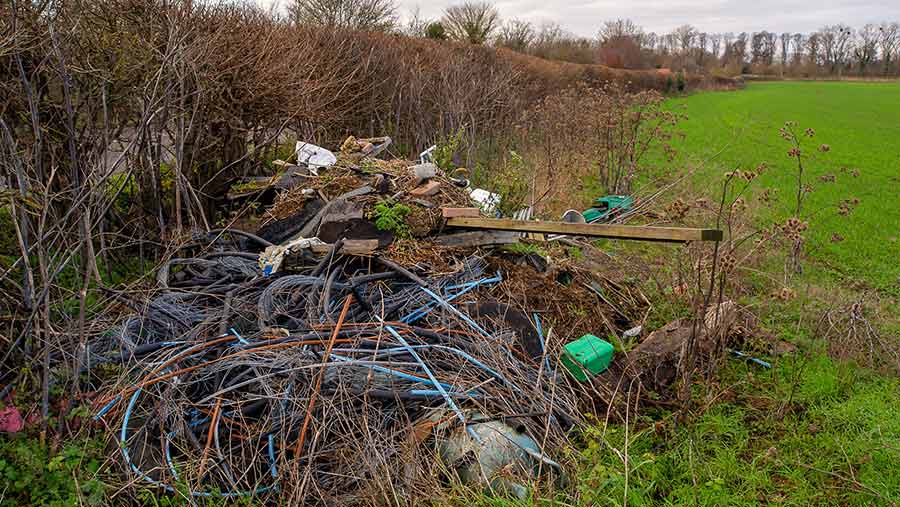New figures show rise in fly-tipping incidents
 © Maureen McLean/Shutterstock
© Maureen McLean/Shutterstock Councils in England dealt with 976,000 fly-tipping incidents in 2019-20, according to new figures released by Defra.
The figures account for waste illegally dumped on public land reported to the local authorities and represent a 2% increase from the 957,000 reported incidents in 2018-19.
See also: What to do if you’re a victim of… fly-tipping
Just under two thirds (65%) of fly-tips involved household waste. The most common place for fly-tipping was on pavements and roads, which accounted for 43% of total incidents in 2019-20.
‘Tip of the iceberg’
Responsibility for dealing with fly-tipping on private land rests with the private landowner and is not subject to mandatory data reporting, so is not included in the Defra report.
Country Land and Business Association (CLA) president Mark Bridgeman said the figures were alarming, but just the “tip of the iceberg”.
“Cases of fly-tipping on privately owned land are significantly more than on public land so these government figures do not reflect the true scale of this type of organised crime, which blights our rural communities,” Mr Bridgeman said.
“Part of the problem is that it’s currently too simple to gain a waste-carrying licence that enables firms to transport and dispose of waste, and this needs urgent reform with correct checks put in place. A revamped system would act as a deterrent.
“Although the maximum fine for anyone caught fly-tipping is £50,000 or 12 months imprisonment, if convicted in a Magistrates’ Court, this is seldom enforced,” Mr Bridgeman added.
The Defra report said councils carried out 474,000 enforcement actions in 2019-20. The number of fixed-penalty notices issued was 75,400 and the number of court fines 2,671.
Covid impact
Only the final week of the 2019-20 reporting period, 23-31 March 2020, coincided with the start of the national lockdown on 23 March and the report said “we would not expect to see a noticeable impact of Covid-19 in the statistics”.
Case study: Fly-tipping is an ‘infectious disease’
Livestock and arable farmer Jonny Walker says fly-tipping is like an “infectious disease” where he lives in North Wiltshire.
The fed-up farmer has land close to the M4 and fly-tippers have broken gates to dump waste, or have just left it in the field entrance.
The rubbish is mainly builders waste, glass, contaminated oil products and tyres.
Mr Walker told Farmers Weekly: “It is grossly unreported. If you are in my position and somebody tips on private land a load of rubbish, you will get it tidied up pretty quickly because once there is a pile, the next person drives down and chucks their bit on and it just keeps going.”
In 2020 Mr Walker paid £600 for two commercial skips to clear waste dumped illegally on his land. It took two days of work to clear.
The farmer has seen waste dumped in crop fields get churned up in the combine at harvest time, and gates broken to fields with sheep in. Mr Walker said the law needed to be tougher to clamp down on fly-tippers, including vehicles being crushed, a criminal record and tougher fines.
